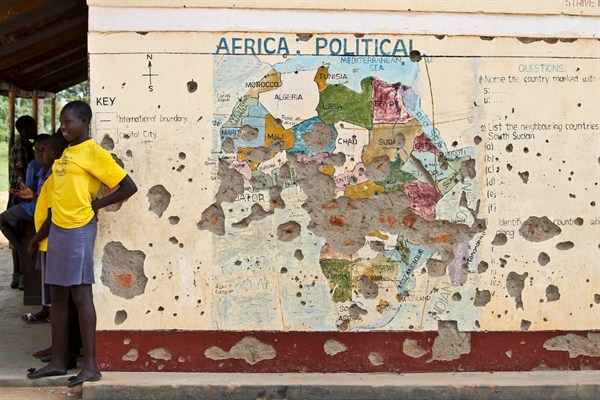The third anniversary last week of the start of South Sudan’s ongoing civil war served only to reinforce how intractable that conflict has become. A peace deal is in tatters, along with the country’s economy. With the return of the dry season, the combatants appear to be preparing for another round of fighting. And the United Nations is now warning of possible genocide.
South Sudanese are keenly aware that after three years of fighting, the situation can still deteriorate further. Since the end of October, more than 280,000 people have fled the country. According to the U.N.’s refugee agency, that brings the total number of South Sudanese refugees to nearly 1.2 million since the conflict began in December 2013.
The fighting, which started in the capital, Juba, grew out of a political dispute between President Salva Kiir and his former deputy, Riek Machar. Clashes moved rapidly from Juba to the country’s northeast, initially evolving largely along an ethnic line that pitted Kiir’s Dinka community against Machar’s Nuer. Though they are the country’s largest tribes, the Dinka and Nuer are only two of South Sudan’s dozens of ethnic communities, and as the conflict has endured—and spread—it is exposing additional ethnic fault lines.

